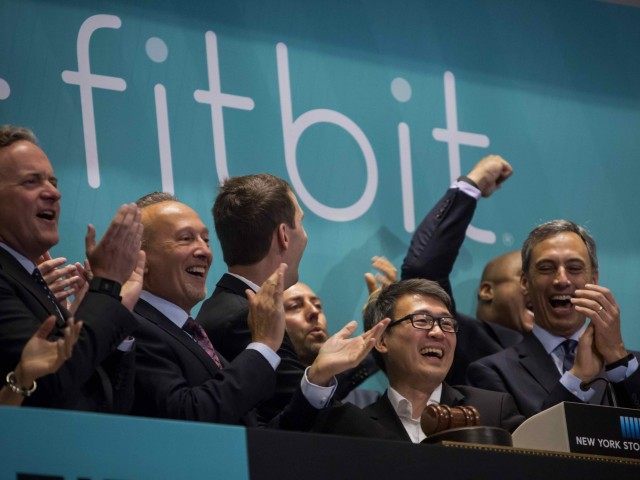If Robin Leach visited the headquarters of Fibit, Inc. in San Francisco today, it would be all “champagne wishes and caviar dreams” as the leading wearable fitness tracker raised $793.5 million at a stunning valuation of $4.1 billion in the largest initial public offering (IPO) by any consumer electronics company in history.
The IPO proves that despite Uber being crushed overnight and the Apple Watch withering, Silicon Valley’s pixie dust machine continues to create massive wealth from simple ideas made great.
If you want to record your sleep, count your calories, and track your steps, all in one wearable device, Fibit is for you. The product ranges from the low end Fitbit Zip at $59.95, to the clip-on Fibit Flex and water-proof Fitbit One at $99.95. Users include people with autoimmune diseases following continuous doctor monitoring, world-class-athletes training for events, but mostly millennials that want to lose weight and get into shape.
The Fitbit devices enable the users to sync all of their information into an online profile through an iPhone, Android device or laptop, which allows them to accumulate points during the day.
Individuals know they should take 10,000 steps each day to stay in healthy. Fitbit tracks the users’ points based on the number of steps they take during the day to earn performance “badges” for that day that expire at 12 midnight.
By using the online features, the user can track what he/she ate that day to figure out how many calories they consumed and burned walking or working out. Users can then set fitness, weight loss and sleep goals.
But it is when users add “friends” to the Fitbit online app to share if and how they are meeting their goals that the Fitbit buzz picks-up. This personalized community of sharers quickly becomes virally competitive in comparing progress and results.
The Fitbit online app also allows the user to “earn” rewards from retailers for healthy performance. Shopyourway.com offers $5 in credit from “Shop Your Way Rewards” for every 14 miles walked; Walgreen’s offers “Balance Rewards Points” that can be used for store discounts; AchieveMint offers a “$50 Visa Card” for accumulating 50,000 points.
The company’s profits and revenue growth pleasantly surprised most analysts, who had expected the young tech company would still be losing money. But Fitbit made a $132 million profit in 2014 after losing $52 million the year before on a revenue jump from $271 million in 2013 to $745 million in 2014.
Fitbit was expected to be a hot public offering: it was cut back from $20 to $17-to-$19 a share, but this morning demand surged and the company sold shares at $20. The stock price then zoomed up on the opening by over +50 percent to $30.14 (NYSE-FIT). That works out to over a $2 billion gain in the company’s first minute of being public.

COMMENTS
Please let us know if you're having issues with commenting.